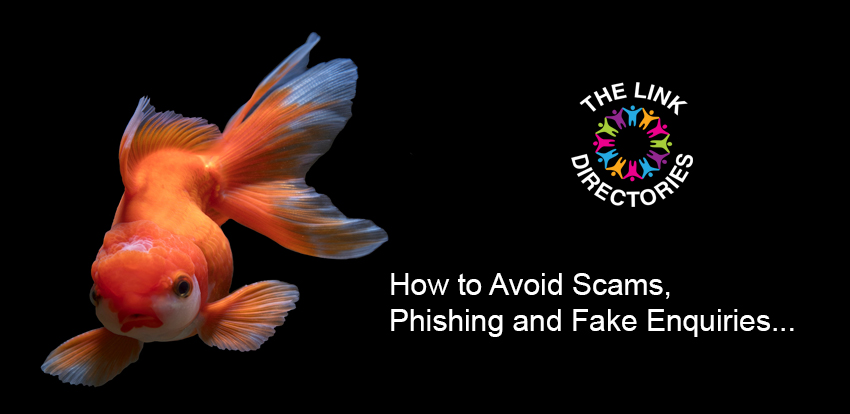I have no doubt that you are well aware of the dangers that the internet can pose for us. There are the obvious ones, such as your lovely uncle the Nigerian Prince, but there are also plenty of scams that are more difficult to detect, especially if you are quickly scanning your emails at a busy time.
Here are some things to look out for to help you avoid scammers, phishing attempts and fake enquiries:
1. Fake phone numbers. An email asking you to call a premium rate number is an obvious ploy. These numbers usually have one of these prefixes: 0944/0843/0844. If you have any suspicions, Googling the number may well show up community websites whose members have been scammed.
2. Messages requesting email communication only. A common scamming tactic is to get you to communicate by email so that they can send you a file infected with a virus. This virus could be one able to take over your computer. Do not open files sent like this. Scan them with anti-virus software and again conduct a Google search.
3. Inconsistencies and inaccuracies. Scammers often make elemental errors such as addressing you as ‘Mr John’ using your first name as your second name. Terminology is another give away. Messages from one email address asking you respond to a different email address should be treated as bogus. Misspellings and inaccurate language or use of phrases are other red flags. I have a message currently sitting in my Junk File marked as ‘urgent’ and coming from ‘Police Command Headquarters’. I don’t think so.
4. Double check email links. Phishing has developed into a highly sophisticated business. Very often you are asked to send or confirm personal information and the message you are looking at is virtually identical to others you have received from a trusted user, such as your bank. Take a very good look at the web address, however, and there are often small inaccuracies. The bank’s name may be missing a letter for instance.
5. Never make upfront payments. If someone offers you something at a price that seems too good to be true, then it probably is! Another popular scam is to ask for money which will subsequently be reimbursed. It won’t be.
As a general rule of thumb, best practice is to ignore anything you suspect to be a scam, refrain from opening anything they send and report to Action Fraud the National Cyber Crime Reporting Centre here.

